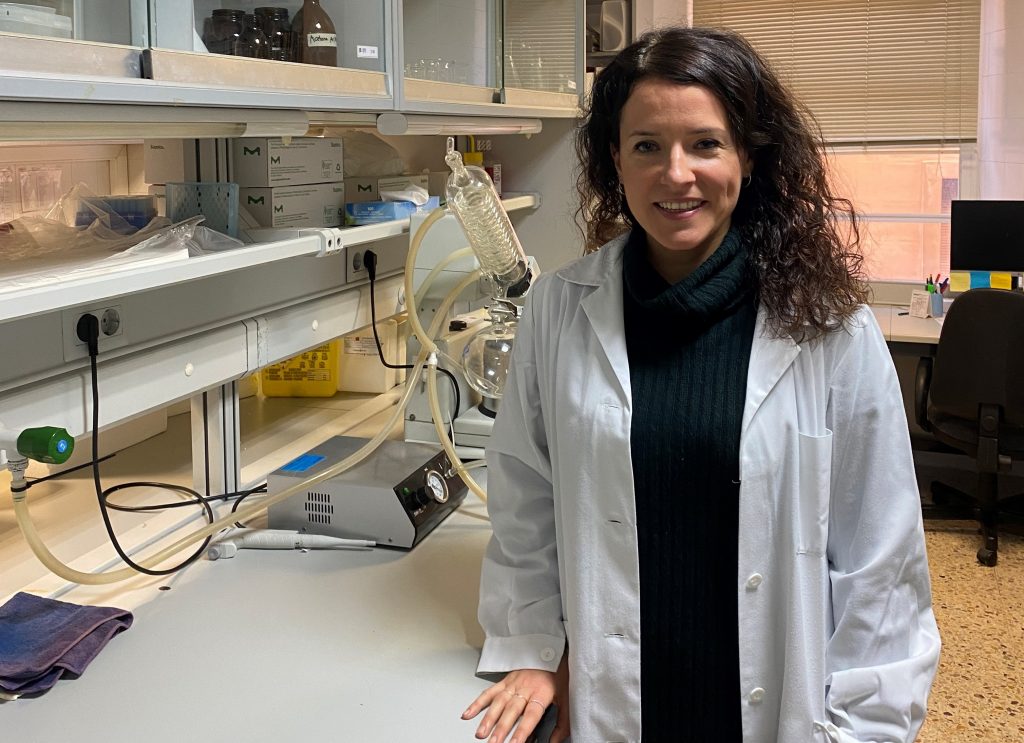Press notes 15/12/2021
Environmental pollution increases the severity and mortality of Covid-19
A study by a research team from the URV and the IISPV shows that people who live in cities where airborne pollutants exceed the threshold set by the WHO suffer from COVID-19 more severely and are more likely to die

A study by a research team from the URV and the IISPV shows that people who live in cities where airborne pollutants exceed the threshold set by the WHO suffer from COVID-19 more severely and are more likely to die
A study led by the TecnATox research group from the Universitat Rovira i Virgili (URV) and the Pere Virgili Institute for Health Research (IISPV) has shown that air pollution is crucial to the severity and mortality caused by the SARS-CoV-2 virus. Chronic exposure to particulate matter (PM10) above the WHO threshold – which is often the case in large cities – dramatically increases the severity and mortality of COVID-19. PM10 particles are very small (between 2.5 and 10 micrometers in diameter) and suspended in the air. Road traffic is the main source of emissions. The study, led by Montse Marquès, a researcher in the Department of Basic Medical Sciences (URV), looked into the relationship between the severity and mortality of COVID-19 and chronic exposure to PM10.
During the first wave of the pandemic, the clinical data of 2,112 patients admitted to fifteen hospitals in Catalonia were analyzed and compared with the PM10 levels recorded by the monitors of the Air Pollution Surveillance and Forecasting Network (Catalan government) in the cities where the hospitals were located from 2014 until the onset of the pandemic. It was concluded that COVID was more severe and lethal in people living in areas with a PM10 concentration above the WHO limit. It was also found that when an individual is infected with SARS-CoV-2, the course of the disease is determined more by chronic exposure to PM10 than other conditions, such as diabetes, hypertension, or hypercholesterolemia, which had become widely recognized risk factors for predicting the severity of infection through a retrospective study applying mathematical models. Finally, an increase of 1 µg/m3 in chronic PM10 exposure was estimated to lead to a 3% increase in the number of patients with a severe case of COVID-19, which can result in more deaths.

The results of this study have had a significant effect on the care provided to people infected with SARS-CoV-2, a disease that has proved to have a wide range of symptoms and a somewhat unpredictable prognosis. To date, health care providers have relied solely on medical history to predict how patients will progress. Now, however, this study has shown the importance of environmental health and “provides scientific evidence that, when treating patients with COVID-19, the medical community needs to take heed of chronic exposure to toxic environmental pollutants, such as airborne particles, if the advance of the disease is to be properly predicted,” explains Montse Marquès, the first author of the research. The study paves the way to investigating the role of contamination in other respiratory viruses, such as influenza, and is a reminder that the PM10 thresholds set by the WHO and global legislators need to be reviewed and updated to protect the health of the population.
The research group that took part in this study believes that the environmental concentrations of PM10 need to be reduced, especially in those places where they are above established limits, so that the severity and mortality of COVID-19, and possibly other respiratory infections, can also be reduced.
The TecnATox group, led by Professor Josep L. Domingo, is a world leader in the field of toxicology and environmental health. In this research, it has worked in collaboration with the Uvasmet group, also from the URV, the IISPV and the STACOV-XULA network.
Bibliographical reference: Montse Marquès, Eudald Correig, Daiana Ibarretxe, Eva Anoro, Juan Antonio Arroyo, Carlos Jericó, Rosa M. Borrallo, Marcel·la Miret, Silvia Näf, Anna Pardo, Verónica Perea, Rosa Pérez-Bernalte, Rafael Ramírez-Montesinos, Meritxell Royuela, Cristina Soler, Maria Urquizu-Padilla, Alberto Zamora, Juan Pedro-Botet, Lluís Masana, José L. Domingo. “Long-term exposure to PM10 above WHO guidelines exacerbates COVID-19 severity and mortality”, Environment International, Volume 158, 2022, 106930.ISSN 0160-4120, https://doi.org/10.1016/j.envint.2021.106930.
